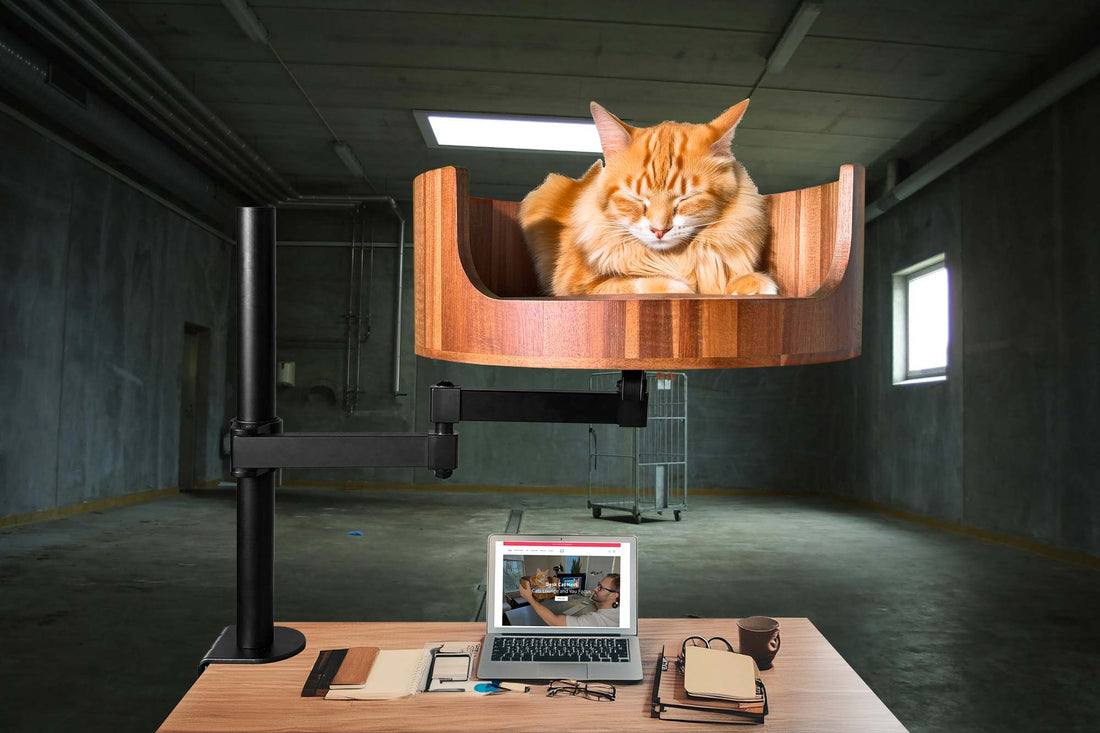
Why Does My Cat Bite Me When I Pet Him? Understanding Behavior
Share
Do you ever find yourself happily petting your cat, only to suddenly feel a sharp bite on your hand or arm? It's a common behavior that many cat owners experience, yet it can leave us feeling confused or frustrated. In this article, we will explore the reasons behind why cats may bite when being petted, as well as provide tips on how to better understand and respond to this behavior.
Cats communicate through a variety of ways, including body language and vocalizations. When it comes to petting, some cats have different thresholds for physical contact and may become overstimulated or uncomfortable with too much petting. Understanding your cat's individual preferences and boundaries is key to preventing biting incidents. Additionally, identifying signs of stress or aggression in your cat's body language can help you anticipate and avoid potential biting situations. By learning to interpret your feline friend's cues and adjusting your interactions accordingly, you can create a more harmonious and enjoyable relationship with your pet.
1. Cats may bite when being petted due to overstimulation, fear, pain, or aggression.
2. Understanding their body language and signals can help prevent biting and improve the human-cat relationship.
3. Providing appropriate outlets for their natural behaviors, such as scratching posts and toys, can reduce biting tendencies.
4. Consistent and gentle handling, along with positive reinforcement, can help train a cat to enjoy petting without biting.
5. Seeking advice from a veterinarian or animal behaviorist can address underlying issues causing the biting behavior.
Understanding the Root Cause of Cat Biting Behavior
When a cat bites while being pet, it can be distressing for the owner. Understanding the root cause of this behavior is crucial to effectively address it. Cats may bite as a form of communication, signaling that they have had enough petting or that they are feeling overstimulated. It can also be a defensive response if they are in pain or uncomfortable. In some cases, cats may have a history of trauma or abuse, leading them to be more prone to defensive behaviors such as biting.
Setting Boundaries and Respect Your Cat's Body Language
Setting boundaries while petting your cat is essential to prevent biting. Pay attention to your cat's body language for signs of discomfort, such as flattened ears, twitching tail, or dilated pupils. If you notice these signs, give your cat some space and avoid petting sensitive areas like the belly or tail. Respect your cat's cues and allow them to initiate and end interactions on their terms.
Training and Socialization Techniques
Training and socialization can help address biting behavior in cats. Positive reinforcement techniques can be used to encourage desirable behaviors and discourage biting. Providing appropriate outlets for your cat's natural instincts, such as scratching posts and interactive toys, can also help redirect their energy away from biting. Socializing your cat from a young age can help prevent fear-based aggression and promote positive interactions with humans and other animals.
Seeking Professional Help
If your cat's biting behavior is severe or persistent, it may be necessary to seek help from a professional behaviorist or veterinarian. They can conduct a thorough evaluation to determine the underlying cause of the biting and provide tailored recommendations for managing and modifying your cat's behavior. In some cases, medication or other interventions may be necessary to address underlying medical or behavioral issues contributing to the biting behavior.
Frequently Asked Questions
Why does my cat bite me when I pet him?
There could be several reasons why your cat is biting you when you pet him. It could be a sign of overstimulation, fear, or a way of communicating that he wants you to stop. It's important to observe your cat's body language and behavior to determine the trigger for the biting.
How can Desk Cat Nest help with my cat biting me when I pet him?
Desk Cat Nest provides a safe and cozy space for your cat to retreat to when he feels overwhelmed or overstimulated. By providing your cat with a designated space to relax and unwind, you may reduce the likelihood of him biting when being petted.
Is Desk Cat Nest suitable for all cats?
Desk Cat Nest is designed for cats of all sizes and breeds. However, it's important to introduce your cat to the nest gradually and observe his behavior to ensure that he feels comfortable using it. If your cat continues to bite when being petted, it's best to consult with a veterinarian or animal behaviorist for further guidance.
Can Desk Cat Nest help with other behavioral issues in cats?
While Desk Cat Nest is primarily designed to provide a cozy retreat for cats, it may also help with other behavioral issues such as aggression, anxiety, and stress. By giving your cat a comfortable space of his own, you may help him feel more secure and relaxed in your home.
In conclusion, if your cat is exhibiting biting behavior when being pet, providing them with a comfortable and secure space like a Desk Cat Bed can help alleviate their stress and anxiety. The elevated and cozy design of the Desk Cat Bed provides a safe retreat for your feline friend, giving them a sense of security and ownership over their own space. By offering this type of designated area for your cat to retreat to when they need space, you can help reduce their tendency to bite when being pet. Investing in a Desk Cat Bed is a valuable choice for both you and your cat, as it can improve the bond between you while also keeping your furry friend feeling safe and secure.



















































